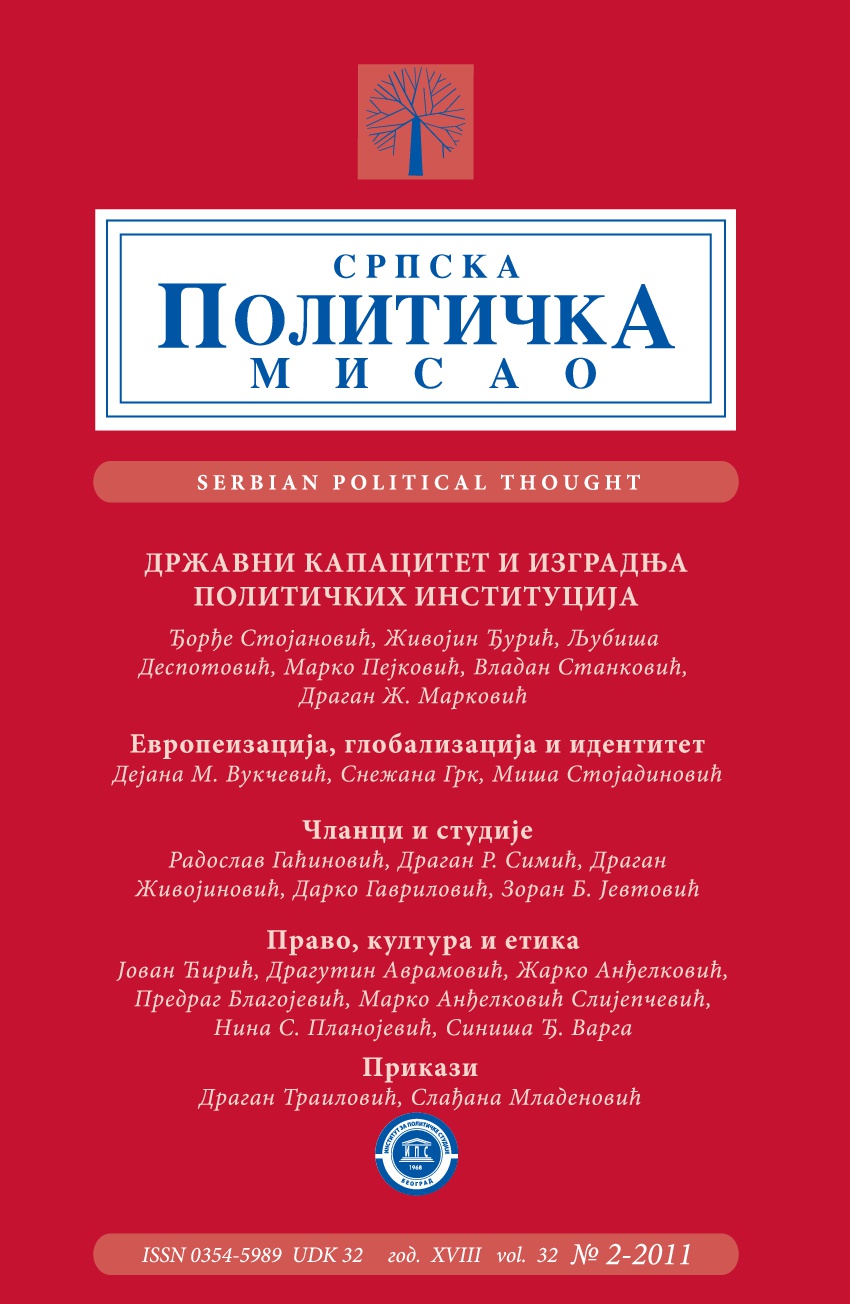Србија и Европска унија– кризе после кризе
Serbia and the European Union – Crises After the Crisis
Author(s): Snežana GrkSubject(s): National Economy, Supranational / Global Economy, Economic policy, EU-Approach / EU-Accession / EU-Development, Corruption - Transparency - Anti-Corruption
Published by: Институт за политичке студије
Keywords: crises after the crisis; unemployment; poverty; loans; external debt; corruption; European Union;
Summary/Abstract: The financial and economic crisis in the world is the consequence of much deeper disturbances and an indication of more precarious trends. Serbia has entered an economic crisis much earlier than the outbreak of the latest world financial crisis. The country will suffer from long- term consequences of its own crisis due to slow structural reforms and a wrong macroeconomic policy which was led. High government spending, import and foreign indebtedness will no longer be possible, because those countries that Serbia has been depending on will still be putting up with the consequences of the crisis as well. An additional problem is posed by the fact that new largescale crises in the world are in sight, as an effect of the rise in the price of food, only to be followed by the scarcity of some resources, such as drinking water or energy. New crises will manifest in different ways in different continents. Serbia, which is part of Europe and the world, must apply its own model of macroeconomic policy to offset the negative factors that are yet to come from the external environment, as well as to resist the factors that have been a generator of the internal crisis for decades. The Serbian economic problem is not a local consequence of the global crisis, but is due to its problematic model of growth. The roots of a destructive national economy and policy run deep. And new turbulences on the Serbian economic scene brought about by new crises will be recurrent and enduring, and will further affect the real sector and the population. A new social and debt crisis will have a deep and lasting effect on the majority of businesses, workers, consumers and creditors. The events that will follow will additionally intensify the social and political crisis. At a time when Europe and the world are facing new crisis, the following question arises: does the European Union need Serbia the way it is today?
Journal: Српска политичка мисао
- Issue Year: 2011
- Issue No: 2
- Page Range: 111-134
- Page Count: 24
- Language: Serbian

